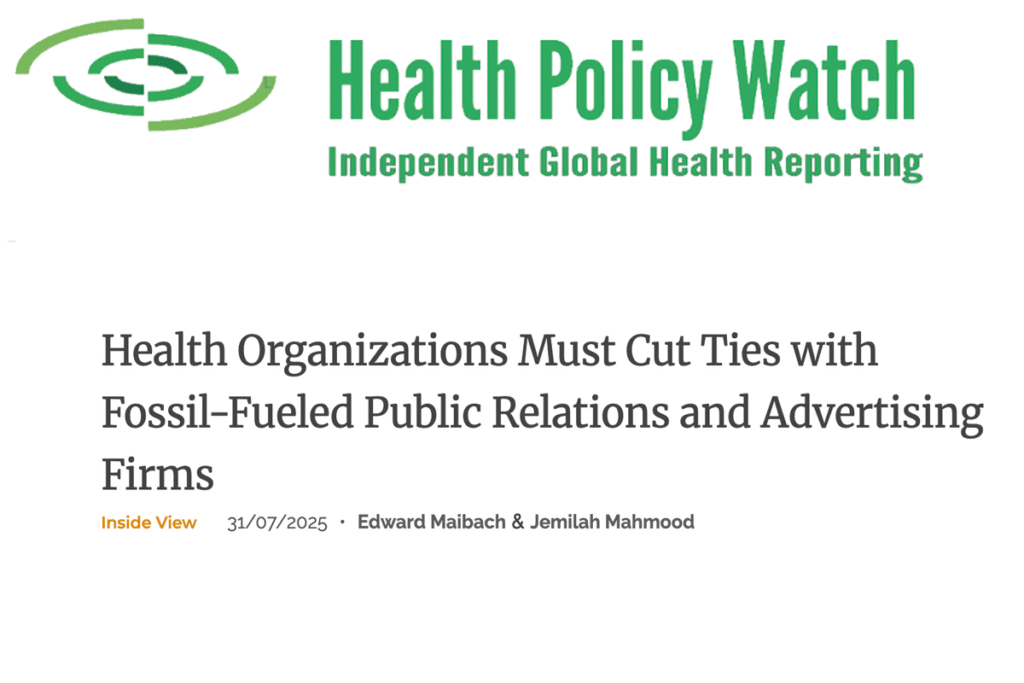Published by Health Policy Watch, July 31, 2025.
Authors:
- Edward Maibach is a public health professional and a member of the US National Academy of Medicine, currently serving on the Board of Directors of the Global Climate and Health Alliance. Earlier in his career, he served as a senior executive at Porter Novelli, a prominent public relations company.
- Dr Jemilah Mahmood, a physician and experienced crisis leader, is the Executive Director of the Sunway Centre for Planetary Health at Sunway University, Malaysia. She is the founder of MERCY Malaysia and has served in leadership roles internationally with the United Nations and Red Cross for the last decade.
As health actors meet this week in Brasilia to refine a Health Action Plan for COP30, ending relationships with PR firms that engage with fossil fuel producers is one concrete step both civil society and UN actors could take now, two leading global health actors argue. The call is the more urgent in light of the UN’s recent selection of a media firm representing Shell to promote the upcoming UN Climate Conference (COP30), hosted by Brazil in Bélem.
Even while the health impacts of fossil fuel use and climate change surge – through air pollution, intensifying heatwaves, wildfires, and floods – many health organizations remain entangled with public relations and advertising agencies that also serve the fossil fuel industry.
It’s a deeply troubling contradiction that must end, especially given the recent ruling by the International Court of Justice affirming that states may be held legally responsible for harm caused by fossil fuel emissions – including health harms. There is no justification for continued health sector alignment with fossil fuel interests
For decades, fossil fuel companies have run a well-financed disinformation campaign to deny climate change and obscure the harms their products cause to our environment and our health. Their enablers? Many of the world’s top public relations (PR) and advertising agencies that once helped “Big Tobacco” deny the dangers of smoking.
These firms don’t just write ads and press releases. They’re shaping narratives, rebranding fracked methane as “clean” “natural” gas, showcasing oil companies (the world-leading carbon polluters) as climate champions, and deflecting scrutiny from an industry that profits by accelerating climate breakdown and spreading disease.


